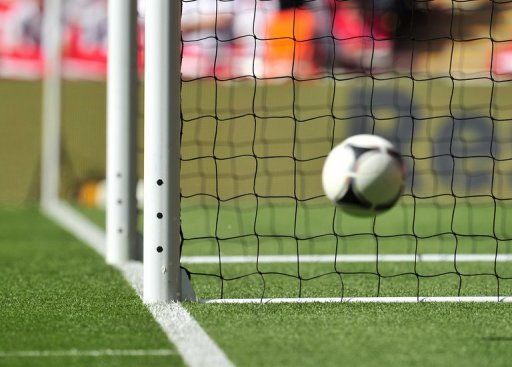Professional football players don’t just kick the ball – they try to look good doing it. Design students in Germany have ranked the jerseys in the Bundesliga, and their Professor, Martina Becker, tells DW who won.
Every year, at the start of the Bundesliga season, the Dusseldorf-based Media Design School selects Germany’s jersey champion, based on the design, TV-compatibility, cut and material. Together with her students, sports designer and lecturer Martina Becker has chosen the most beautiful home jersey from among the 18 clubs in the league. Here, she explains more to DW.
Before telling us who the German jersey champion of 2015 is, would you please first explain what makes a good jersey?
To me as a designer, a good jersey must first of all have a good fit. That should by no means be too baggy. A jersey should have a tight fitting cut, but it should not be too over-sized. In terms of its function, that would not be desirable at all. Then, the material plays an important role, too. Jerseys tend to be worn a lot, and that’s why they need to be functional. As a designer, you’re also limited to the colours of the clubs, as well as the sponsors. You have to leave a lot of space on the front side for the sponsors, and on the back side for the number. That’s a major challenge. But the sponsor logos need to be integrated into the jersey, while still producing a nice overall design. And I think a jersey should not come across as too playful.
Can you give us some examples?
Specifically, I can tell you that Hanover’s jersey is too playful. As for the collar, there’s just too much to it – a high collar and even a round neck. A beautiful neckline is simply a V-neck, for example in Eintracht Frankfurt’s shirts. Their collar has an extra rib insert.
Can you, as a designer, discern a particular trend in this season’s Bundesliga jerseys?
There’s certainly a discernible trend. To start with, the jerseys are created by major sporting goods manufacturers which develop them together with the clubs. What has been done in recent years is mainly to improve the cuts. Frankfurt, for example, has made a big step forwards in this regard and their cut has become relatively slim. We already witnessed that same trend with our national team during the 2014 World Cup in Brazil. Needless to say, this tight fit looks pretty good on professional players, as their bodies are very well built and muscular. When it comes to the fans, I’m a bit sceptical, however. A slim cut in size XL – well, not exactly ideal for people who happen to be a bit chubby. Fashion rules do not always make sense in practice.
You’ve mentioned Eintracht Frankfurt several times. Should that team be Germany’s jersey champion in your view?
In my personal view, yes. But as a group, we decided in favour of FC Ingolstadt, which have also jumped into the first league this season. With their jersey, they’ve also risen from the second Bundesliga to the first, while also becoming our jersey champion. The majority of the students opted for Ingolstadt with Frankfurt close behind. Ingolstadt’s jersey has a clear design without many frills. Black, red, and white are very suitable for the media, since that choice of colours is very conspicuous. And they have perfectly integrated the logos: the white stripes on the shoulder, the white sponsor’s logo, and their own. In terms of colours, all that fits together very harmoniously.
So a red-black jersey has made it to the top during this season. Would you say that the club colours determine whether or not one stands a chance of becoming the jersey champion?
The colour alone is not decisive. Nevertheless, it was quite clear to us that most all-white jerseys were out of the race right from the start. They came across more like giveaways or promotional shirts – shirts that people can get as a souvenir. They all seemed to be pretty basic, almost a bit boring.
Do you, as a designer, recognise a German football jersey at first sight? Is there a fundamental difference between German jerseys and those of non-German teams?
I wouldn’t say so. There certainly are jerseys around that I could not fathom to be German-made. For example, the pink jersey of Juventus Turin. This season, that one is their away jersey. This is retro – they already had a pink jersey a long time ago. Another jersey that I cannot imagine for Germany is the gold away jersey of FC Arsenal – that one didn’t impress me at all.
Do you also have an UEFA Champions League winner?
The AS Roma is definitely my favourite in Europe. They have made a very tasteful choice with their Bordeaux-coloured home jersey with sunny yellow accents.
How about women’s soccer jerseys?
We actually thought about choosing a women’s jersey champion for the first time. But unfortunately, nothing came of it. For a simple reason: Only a few German women clubs have their own jerseys. Most of them simply wear men’s jerseys. And what I find particularly misplaced is that the ladies, even more so than their male counterparts, attach too little importance to their appearance. That is mainly due to the fact that the producers want to sell the jerseys to the fans as well. There is indeed room for improvement.



